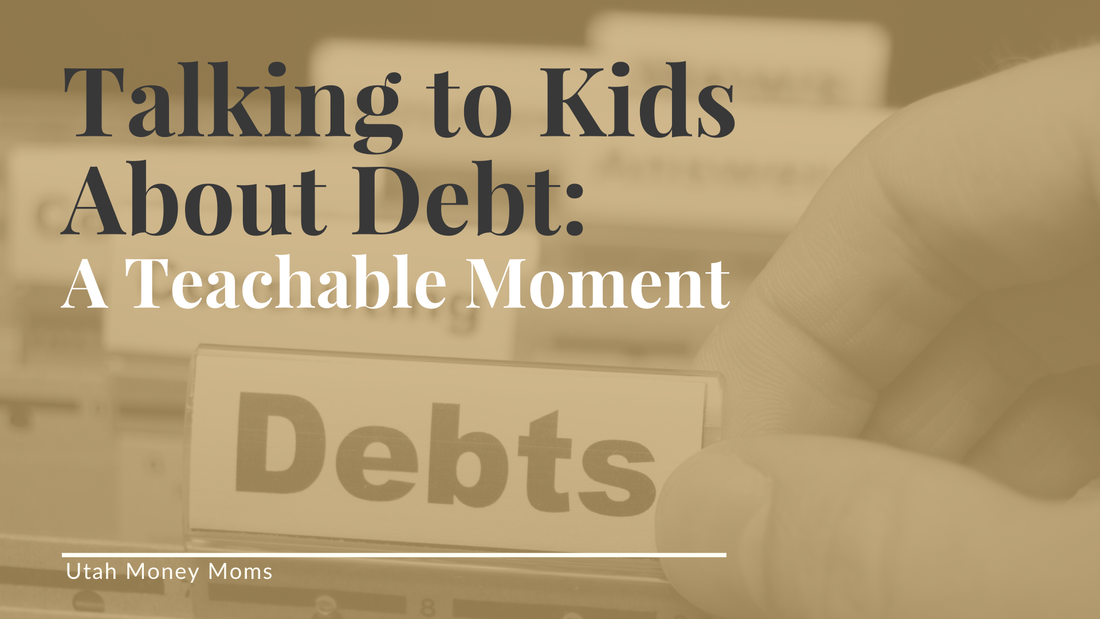|
Vincenza Vicari-Bentley, AFC Empowering Financial Wellness Program Coordinator In Utah, the average home today sells for about $442,000 and most people finance that amount over 30 years paying around 4% interest. Now, let’s talk about how to pay that off quicker to save you a lot of money in interest, not to mention time.
Let’s say you really get intentional with your budget (or any extra money that may come your way) and decide to put an extra $100 per month towards the principal balance of your mortgage. You would end up saving about $28,000 in interest AND you would pay off your home mortgage loan 8 years sooner! Don’t discount the small amounts you can put towards debt, any amount more than the minimum payment amount can help save you tons of money in the long run! If you would like to calculate the most efficient strategy to pay down all of your debts, use the free calculator tool at www.powerpay.org and see how much time and money you can save!
0 Comments
Vincenza Vicari-Bentley, AFC Empowering Financial Wellness Program Coordinator  Debt can be an abstract topic for children to grasp but it doesn’t mean we should shy away from those money conversations. A few years back, my husband and I were laser focused on paying off our debt. At the time, our child was young, and I found myself struggling to help him understand, in an age appropriate way, why we couldn’t buy that toy or travel to Disneyworld. It hurt much less to scale back on my shopping trips and “extra” expenses than it hurt me to say “no” to some of our child’s wants. I found myself thinking maybe this was a “teachable moment” instead of feeling anxious (and making our child feel anxious) I wanted to frame our debt payoff journey in a way that he could wrap his little head around it without stressing him. Jerevie Canlas, Ph.D., CFLE, Empowering Financial Wellness Program Coordinator  In all fairness, credit cards are very convenient and help individuals build credit - because there are things that are not easy to purchase in cash. However, it’s really tempting to overspend with a credit card. If not used cautiously, excessive credit card use can put you years behind in your financial goals. Imagine this: you are using credit cards to build credit so you can purchase your own home. When you miss a payment or are not able to pay your balance in full, you might not be able to build good credit, so you end up getting a less desirable interest rate on a mortgage loan. What’s worse, since you’re paying off debt, saving for a downpayment for that dream home might take longer. Just with this scenario, the biggest advantage of credit cards is credit building, and the biggest pitfall is overspending and debt - exactly the things that will ruin the credit you’re wanting to build. Vincenza Vicari-Bentley, AFC USU Extension Empowering Financial Wellness Program Coordinator  It’s a new year and with that comes new goals, fresh starts and perspectives. In 2020 Americans racked up $601 billion to run the total U.S. household debt to record-shattering $14.15 trillion. So here we are in 2021 (and maybe looking at post holiday spending?). Have you been thinking about if you’re carrying too much debt? When it comes to the question of how much debt is too much, there are as many answers as there are people. Basic answer: It all depends on what you can afford. How do you figure out what you can afford? It’s called a Debt-to-income ratio or DTI. Whether you make $500 a week or $500 an hour there is a standard formula lenders use to determine when debt can become a problem. Andrea Schmutz USU Extension Assistant Professor  Warning: I absolutely LOVE Dr. Seuss! I love how his books helped my kids learn to read. I love his made up names and animals that make me smile. I love the playful artwork and the vibrant colors. But do you want to know what I love most? I love the versatility of his stories that can be read simply for fun or to teach life lessons. I’ll bet you didn’t realize that some of Dr. Seuss’s stories can even help you on your path to financial wellness, did you? If any of your new year’s resolutions have to do with managing your money better or dealing with debt, stick with me as we explore the wisdom Dr. Seuss imparted in a few of his well known stories. |
TAKE A FREE CLASS!Host a ClassamandaSharing real-life money smarts to help you stay on track with financial goals while still enjoying life! Follow the fun on InstagramAS SEEN ONawardsBest of State 2022 & 2023: Personal Finance Education
1st Place National Award in Social Media Education from the National Extension Association of Family and Consumer Sciences
Gold Award in Blog Site category at the 7th annual Education Digital Marketing Awards.
Platinum Award in Digital Media, Web Design category at the International Marketing and Communication Awards.
Categories
All
|











